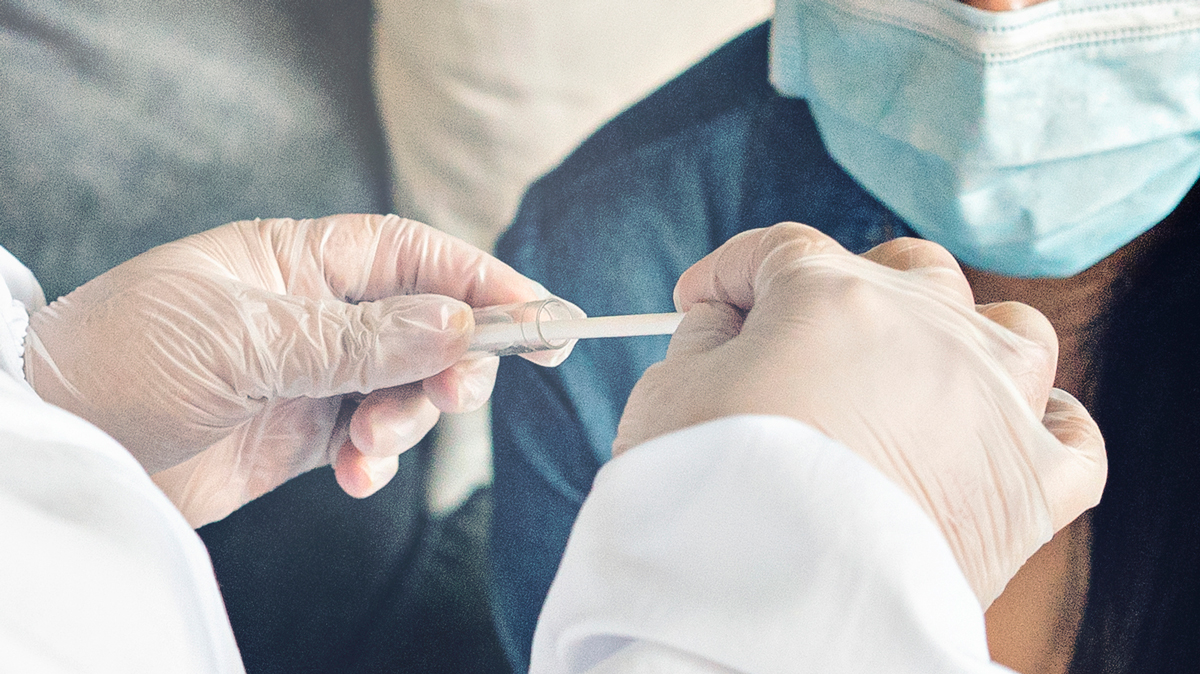Are rapid progress and patient engagement mutually exclusive in a COVID-19 world?

COVID-19 has sparked a flurry of research and discoveries are being made at an unprecedented rate – but patient participation cannot and should not be left behind in the rush, say leading voices.
SARS-CoV-2 has demonstrated both the strengths and the weaknesses of the life sciences ecosystem, and it is now up to the sector to learn and to lead.
While trials of COVID-19 vaccines and treatments have accelerated at a hitherto unimaginable rate, work in other conditions has been halted and paused, both of which could hinder future progress, said Aisling Burnand, chief executive of the Association of Medical Research Charities (AMRC).
“In a race of frantic, unprecedented change with challenges none of us have faced before, patient and public involvement has felt pushed aside.”
“Research has stopped, and what has gone ahead has felt rushed, with little listening,” she said during the first session of this year’s Pioneering Partnerships conference, organised by the Association of the British Pharmaceutical Industry (ABPI), the National Institute for Health Research (NIHR), and the AMRC.
As we turn the research tap back on, the sector must do everything it can ensure the patient voice gains rather than loses importance, said the speakers.
Halting progress
In April, 73% of clinical trials were stopped, and, as of early October, more than 40% were still on hold.
Aisling said we were “unlikely” to reach pre-COVID levels of non-SARS-CoV-2 clinical research before August 2021, even without the looming second wave. It means that without a cross-sector plan to get trials back up a running, a decade of research could be lost to the COVID-19 crisis.
Baroness Nicola Blackwood, Conservative MP and chair of Genomics England, agreed, and said that unlocking what we have learned from research during the pandemic so far would help move the NHS from a “sick care service to a healthcare service”.
“COVID-19 has transformed the way clinical trials are run. Our research ecosystem responded to the crisis with a pace and effectiveness that few other nations were able to match,” said Baroness Blackwood.
“UK researchers sourced streamlined regulatory processes, had better communication with patients and clinicians, and we saw some much more sensible approaches to risk. This sped up the development of new COVID treatments, without sacrificing safety.”
Weaknesses
But the crisis also brought some of the system’s weaknesses into sharp focus, said NIHR director Jeremy Taylor.
“One of the consequences of the system commissioning lots of urgent COVID-19 research was that, to a certain extent, patient and public involvement got bypassed. For various reasons it was too difficult or time consuming to do when everybody was in a frightful rush,” he said.
“Patient and public involvement turned out to be less embedded than we thought, so I think COVID has been a bit of a shock to the system. It’s made us think that maybe we have been a little bit too complacent.”
The virus, which has disproportionally affected people from Black, Asian and minatory ethic (BAME) communities had also highlighted a lack of diverse voices, and the urgent need to address clinical trial representation and health inequalities, he said.
“We need more BAME voices around the table. We need younger people, and we need people from excluded communities.”
Regardless of what the health system is faced with, Dr Richard Torbett, chief executive of the ABPI, said that “we can't ignore our collective responsibility to make sure we conduct ethical research”.
“We need to continue advocating the importance of having the patient voice right at the heart of everything that we do.”
Building on the positives
Aisling said we needed to build upon the positives, pointing to the increased public awareness around the process, language, and importance of clinical research.
More people have volunteered for trials than ever before and thousands are monitoring their health on a daily basis.
The sector must seize this opportunity to build back better and stronger, the speakers agreed.
Said Baroness Blackwood: “We need to look honestly at the areas where the crisis has brought sharp relief, and what needs to be improved.
“If we don't take this chance, we risk losing what is a golden moment to make our clinical research landscape fit for the next generation.”
It was a sentiment echoed by Dr Torbett, who said the UK government needed to take “urgent action” to develop a sustainable, safe, restart plan for non-COVID clinical research.
“It is incredibly important to ensure all patients have the opportunity to be involved and engaged with research. That needs to be a principle that carries right the way through this,” he said.
“I really feel that we've got a head of steam right now with multiple stakeholders, particularly in this country, who really understand the value of medical research. We have a genuine opportunity to lead here.”
- In response to the COVID-19 pandemic, the ABPI has published a summary of its advice to the pharmaceutical industry on working with patients and the public. Click here for more information.













